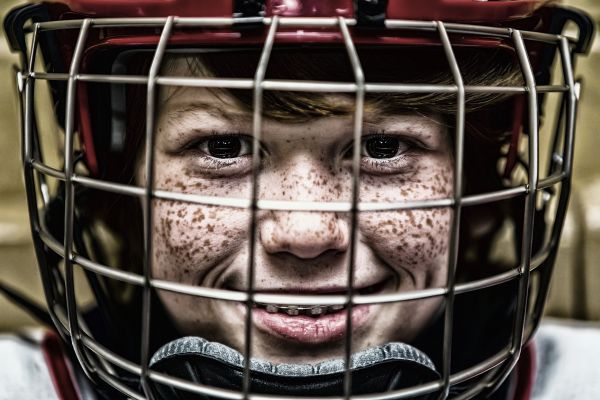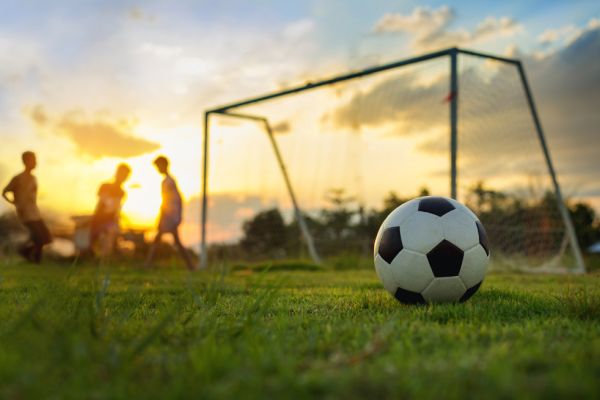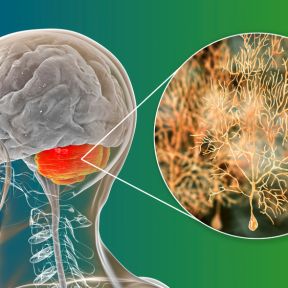
Sport and Competition
Sports are more than just fun and games and entertainment for the masses. Athletes, coaches, parents, and fans are drawn to the training, focus, discipline, loyalty, competitiveness, and individual and team performances that are hallmarks of sports culture.
For young people, sports are a means to physical and emotional well-being and the development of strong leadership skills like communication and organization. Sports can play a potential role in alleviating a wide range of social problems in communities that may otherwise be afflicted with substance abuse, crime, academic underachievement, and lack of a cohesive social identity.
Fighting to win draws on cooperation, concentration, coordination, and creativity—all goals worth striving for in their own right. What is the motivation for continually improving performance? How do athletes handle such immense pressure?

Athletics encompasses training to improve physical and technical skill as well as healthy habits of eating, drinking, and sleeping. But mentality is a huge part of the game too. Athletes may work to build confidence and maintain focus or address perfectionism and abolish fears of failure.
Setting attainable goals, and breaking those goals down into manageable steps, is one important skill. Visualizing success and establishing a routine before a competition are also helpful tools.
Flow occurs when you’re so immersed and energized by an activity that the rest of the world seems to disappear. Stating why the goal is important to you, refusing to multitask, and practicing mindfulness are a few of the steps you can take to enter a flow state.
Research suggests that planfulness—the tendency to focus on goal achievement—is linked to sticking with an exercise regimen. Conscientiousness, grit, and self-control are valuable traits for athletic success as well.

From elementary school soccer tryouts to the Olympics, individual and team sports are an increasing arena of pressure for recreational and professional athletes alike.
Athletes are beholden to many different people, from parents and coaches to teachers and community members. Sports programs and the time commitment attached have become more intense over time. Furthermore, one’s financial future may be riding on performances at the high school or college level.
An athlete’s identity can be wrapped up in their sport, so setbacks not only hurt their performance but also their ego and sense of self. Serious blows can lead to fatigue, anxiety, and depression. Yet different strategies can help alleviate the stress that can accompany athletics.
Athletes can acknowledge their difficult emotions, because denying or fighting them sometimes exacerbates them. Taking deep breaths or practicing meditation can also curb stress. With a clear mind, they can determine how to respond to the situation, for instance by changing a training regimen.
Parental pressure can lead children to develop a deep fear of failure. But for kids, results aren’t as important as developing passion and working hard. Parents should aim to manage their emotions at competitions, avoid coaching before a game, and prioritize process over results.
Pressure in the sports world can lead athletes and coaches to miss or ignore concussions, but it’s critical to seek medical attention for traumatic brain injuries. Symptoms of a concussion include dizziness, fatigue, nausea, headaches, anger, impatience, and an inability to concentrate.

Mental training is often neglected compared to physical exercise or addressed only in response to a problem. But just as technical skills require time to cultivate, so do mental habits and beliefs. Athletes and coaches may work on these challenges together or athletes may see a sports psychologist who focuses on mental training.
Sports psychology helps athletes identify and mitigate obstacles, such as perfectionism or fear of failure, and cultivate key traits, such as confidence or concentration. These are just a few of the abilities and tools that may be the focus of mental training.
Most sports psychologists begin with an undergraduate degree in psychology or sports psychology. They go on to obtain a master’s degree or doctorate in sports psychology and apply for licensure. Sports psychologists can work at universities, hospitals, rehabilitation centers, sports teams, the military, and private practice.














